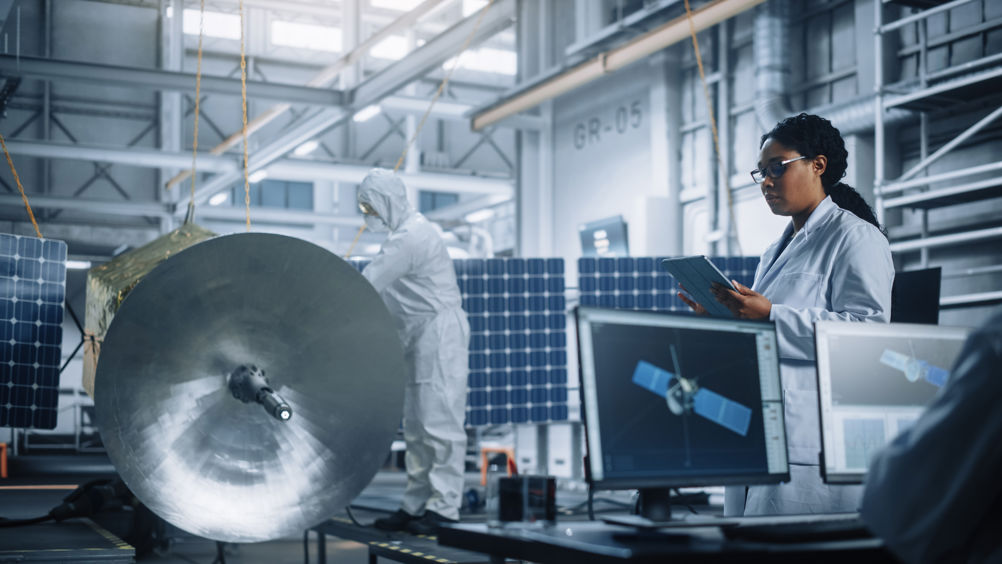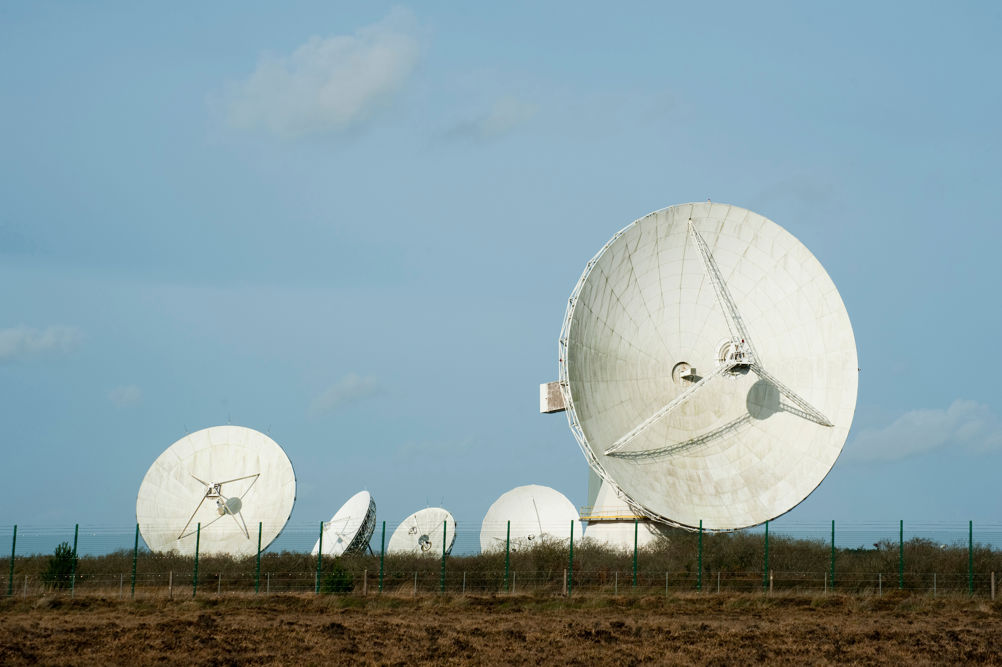The UK's space engineering sector is a dynamic and rapidly evolving industry that plays a crucial role in the nation's economy and technological advancement. The sector generated is estimated to make an impressive income of £17.5 billion a year, highlighting its significant contribution to the UK economy.
The sector encompasses a diverse array of companies, each specialising in different facets of space technology and services, and each offering engineering students and graduates an array of opportunities.
Guaranteed to grow in importance and offering in the not-so-distant future, this multifaceted industry not only drives economic growth but also fosters innovation, positioning the UK as a key player in the global space arena.
Types of Companies in the Sector
Space Engineering Firms: These companies focus on the design, development, and manufacturing of spacecraft, satellites, and related technologies. They are instrumental in advancing the UK's capabilities in space exploration and satellite communications.
Defence Contractors: Operating at the intersection of space technology and national security, these firms develop satellites and space-based systems that enhance defence capabilities, including surveillance, reconnaissance, and secure communications.
Satellite Developers and Operators: These organisations are responsible for the creation and management of satellites used for various purposes such as telecommunications, earth observation, and navigation services.
Key Trends Driving Developments in the Sector
The UK space engineering sector is influenced by several pivotal trends that are shaping its future trajectory:
Sustainable Space Operations
There is an increasing emphasis on developing environmentally friendly technologies and practices within the space industry. This includes initiatives aimed at reducing space debris, enhancing the sustainability of space missions, and minimising the environmental impact of space launches. The focus on sustainability is driven by the need to ensure the long-term usability of Earth's orbital environment and to align with broader environmental goals.

Integration of Artificial Intelligence (AI) and Automation
The incorporation of AI and automation into space systems is revolutionising operations by enhancing efficiency, reliability, and decision-making processes. AI algorithms are being utilised for tasks such as autonomous navigation, data analysis, and predictive maintenance of spacecraft, thereby reducing human intervention and operational costs.
Emergence of Space Exploration and Tourism
The concept of space tourism is transitioning from science fiction to reality, with private companies investing in the development of commercial space travel experiences. This burgeoning sector aims to make space accessible to private individuals, opening new avenues for economic growth and public engagement with space activities.
Expansion of Satellite Constellations
There is a growing trend towards deploying large constellations of small satellites in low Earth orbit to provide global broadband internet coverage. This development is set to enhance global connectivity and create new opportunities for services reliant on high-speed internet access.
Major Projects in the UK
The UK is home to several significant projects that underscore its commitment to advancing space technology and infrastructure:
Development of Spaceports
The UK is investing in the development of spaceports, such as the SaxaVord Spaceport in Shetland. This facility is poised to become a hub for launching small satellites into orbit, enhancing the UK's sovereign launch capabilities.
Goonhilly Earth Station Expansion
Located in Cornwall, the Goonhilly Earth Station is expanding its deep space communications capabilities. It has supported missions such as NASA's Artemis 1 and is developing technologies for tracking space launches and analysing space-based objects.

Collaboration on Satellite Constellations
UK companies are actively involved in international collaborations to develop satellite constellations aimed at providing global broadband services. These projects position the UK as a key contributor to global connectivity initiatives.
Career Opportunities for Engineering Graduates
Systems Engineering: Professionals in this field are responsible for overseeing the design and integration of complex space systems, ensuring that all components function cohesively to meet mission objectives.
Aerospace Engineering: Aerospace engineers focus on the design, development, and testing of spacecraft and satellite structures, propulsion systems, and related technologies.
Software Engineering: Software engineers develop the critical software required for spacecraft operations, including flight control systems, data processing algorithms, and simulation tools.
Telecommunications Engineering: This role involves the development and maintenance of communication systems used in satellites and ground stations, ensuring reliable data transmission between space and Earth.
Project Management: Project managers oversee space projects from conception to completion, coordinating between various teams, managing budgets, and ensuring timelines are met.
Research and Development: R&D professionals engage in pioneering research to advance space technologies, materials, and methodologies, contributing to the continuous innovation within the sector.
Opportunities in Emerging Fields: With the advent of new trends such as space tourism and sustainable space operations, there are emerging roles in areas like environmental impact assessment, space law and policy, and commercial spaceflight operations.
More Sector Guides
A strong foundation in engineering principles, coupled with specialised knowledge in areas pertinent to space technology, is essential. Skills in problem-solving, analytical thinking, and teamwork are highly valued. Additionally, staying abreast of industry trends and continuous professional development can enhance career prospects.
As always, engaging in internships, participating in relevant projects, and networking with professionals in the field can provide practical experience and open doors to opportunities within the sector.
The UK space engineering sector is a vibrant and growing industry, offering a wide range of opportunities for engineering graduates. By aligning their skills and interests with the needs of the sector, aspiring engineers can contribute to groundbreaking projects and be part of the UK's journey in space exploration and technology development.
The Student Engineer is a special channel of The Engineer aimed at educating and inspiring engineering undergraduates about the career opportunities in engineering and also offering practical advice on how they can access these opportunities.











Guest blog: exploring opportunities for hydrogen combustion engines
"We wouldn't need to pillage the environment for the rare metals for batteries, magnets, or catalisers". Batteries don't use rare...